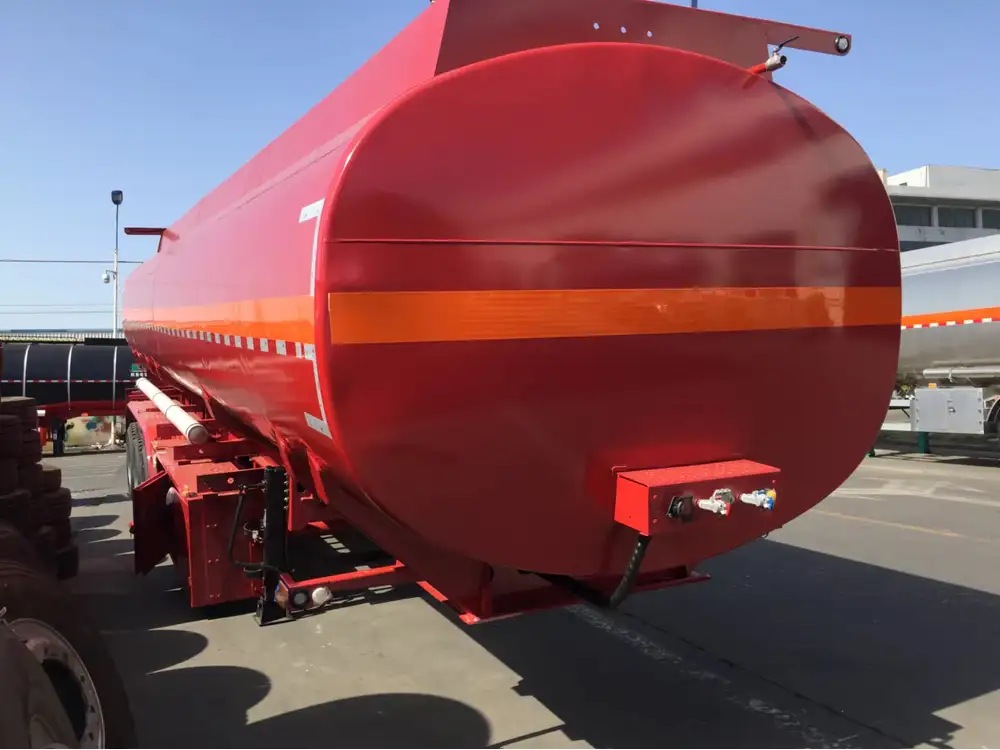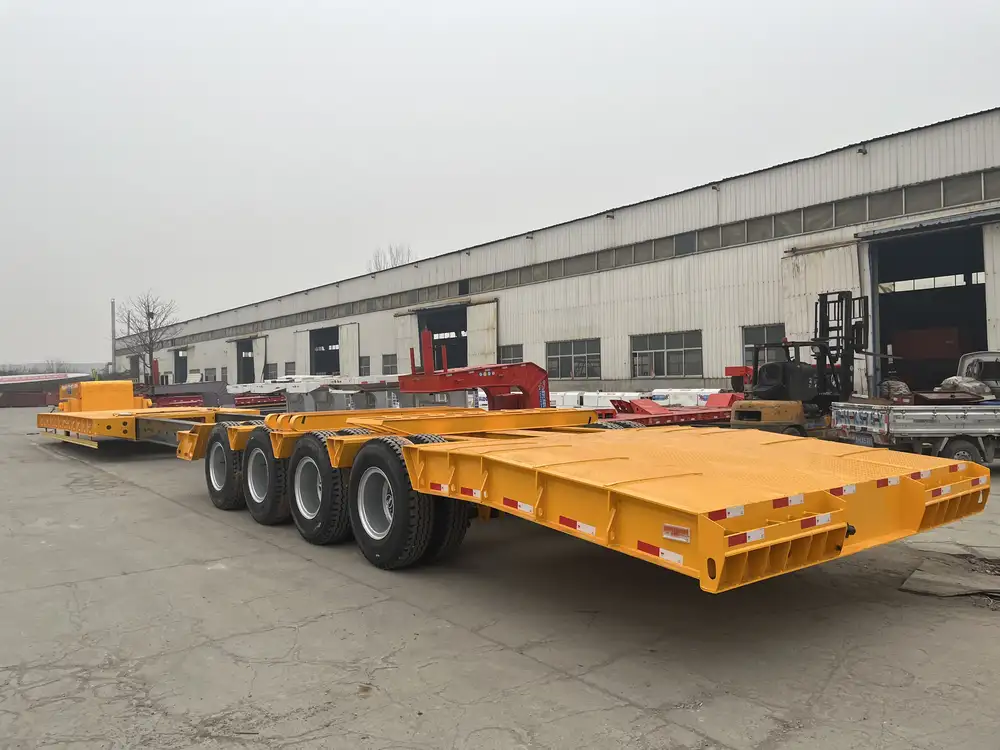When it comes to the heavy-duty world of hauling and construction, dump trailers are indispensable tools designed to make transporting and unloading materials a breeze. But given the sheer variety of options available on the market, how can one discern which manufacturer truly makes the best dump trailer? This in-depth article aims to deconstruct this question, analyzing different aspects of dump trailers and manufacturers to ultimately guide you towards making the most informed purchasing decision possible.
Understanding Dump Trailers
Before diving deep into our analysis, it’s essential to understand what a dump trailer is and how it operates. Simply put, dump trailers are specially designed vehicles that allow operators to unload contents, such as gravel, sand, or debris, at an angle, simplifying the unloading process significantly compared to traditional trailers.
Key Features of Dump Trailers:
| Feature | Description |
|---|---|
| Payload Capacity | Ranges typically from 5,000 to 20,000 lbs, dependent on the model and manufacturer. |
| Material Composition | Commonly made from steel or aluminum—each with pros and cons regarding weight, strength, and durability. |
| Hydraulic System | Most modern dump trailers utilize hydraulic lifts for smooth and efficient unloading capabilities. |
| Tire Specifications | Tires are crucial for stability and load capacity; heavy-duty tires often feature reinforced sidewalls to withstand harsh conditions. |
| Safety Features | Brakes, reflective markings, and safety chains are standard, but some manufacturers provide enhanced safety options as add-ons or standard features. |
Types of Dump Trailers
There’s no one-size-fits-all for dump trailers. They come in various configurations aimed at different user needs. Here’s a rundown of the most common types:
Gravity Dump Trailers:
- Utilize gravity for unloading, primarily suited for lighter materials.
- Economical but limited in payload capacities.
Hydraulic Dump Trailers:
- Feature a hydraulic lifting mechanism.
- Ideal for construction purposes or heavy-duty materials, offering high return on investment.
Tandem Axle Dump Trailers:
- Equipped with two axles, allowing for greater weight distribution and stability.
- Can handle heavier loads, making them suitable for most commercial applications.
Dump Bed Trailers:
- Have a bed that pivots on an axis, enabling quick and effective unloading.
- Versatile and often used in various industries, including landscaping and commercial construction.
Gooseneck Dump Trailers:
- Designed for heavy-duty towing, providing enhanced stability and maneuverability.
- Often used by larger enterprises that require transporting substantial loads.

Comparisons of Top Dump Trailer Manufacturers
In evaluating who makes the best dump trailer, we’ll look at several leading manufacturers in the industry, assessing their strengths and weaknesses.
1. Big Tex Trailers
| Aspect | Details |
|---|---|
| Material | Primarily steel with some aluminum options available. |
| Warranty | Offers a 3-year limited warranty, appealing to consumers looking for reliability. |
| Payload Capacity | Ranges from lightweight models (less than 3,000 lbs) to heavy-duty options (up to 20,000 lbs). |
| Best For | Commercial users needing durable, high-capacity options. |
2. Bumper Dump
| Aspect | Details |
|---|---|
| Material | Constructed from high-quality steel for optimal durability. |
| Warranty | Provides a 5-year limited warranty, exceeding many competitors in terms of confidence and value. |
| Unique Feature | Offers an innovative bumper pull design for improved maneuverability. |
| Best For | Those who need ease of access and versatile operations in confined spaces. |

3. Load Trail
| Aspect | Details |
|---|---|
| Material | Heavy-duty steel construction built for resilience under great stress. |
| Warranty | Includes a 1-year manufacturer’s warranty with extensive options for extended coverage. |
| Pricing | Competitive pricing makes it accessible for both amateurs and professionals. |
| Best For | Budget-conscious consumers looking for reliability without compromise. |
4. H&H Trailers
| Aspect | Details |
|---|---|
| Material | A mix of steel and aluminum options, allowing for lighter, rust-resistant choices. |
| Warranty | Backed by a 2-year warranty, focusing on customer satisfaction. |
| Customization | Offers unique customization options tailored to specific industry needs. |
| Best For | Users looking for personalization and tailored features for specialized applications. |
5. Carter Manufacturing
| Aspect | Details |
|---|---|
| Material | Focuses on aluminum, offering lightweight yet sturdy options. |
| Warranty | Provides an unmatched 6-year warranty, a significant advantage for users seeking longevity. |
| High-end Features | Equipped with advanced hydraulic systems designed for smooth operations. |
| Best For | Heavy-duty applications needing reliability and ease of use. |

Analyzing User Needs
While the comparison above offers commendable insights, it’s also crucial to match your specific needs with the capabilities of the trailers available. Determining your requirements often requires reflection on various factors:
1. Material Needs
When selecting a dump trailer, consider the types of materials you’ll most frequently transport. For heavier loads such as boulders or construction debris, steel trailers may offer the necessary durability. Conversely, if weight reduction is paramount—as might be for landscaping tasks—aluminum trailers could be more suitable.
2. Frequency of Use
How often you’ll use the trailer will significantly influence which model to choose. Heavy and robust models may not be necessary if you’re a weekend warrior. Yet, if you’re engaged in daily commercial use, investing in a heavy-duty trailer with a longer lifespan will yield better value.

3. Budget Constraints
Understanding your budget can prevent overspending. While trailers with advanced features offer numerous benefits, evaluating what you actually need for your operations is vital. Aligning your priorities with your budget can help pinpoint an optimal choice.
4. Towing Capability
It’s essential to ensure that your vehicle can safely tow the trailer of your choice. Check the Gross Vehicle Weight Rating (GVWR) of both your trailer and towing vehicle to mitigate any safety issues.
Conclusion: Finding the Right Manufacturer
So, who makes the best dump trailer on the market? There’s no definitive answer, as it largely depends on individual needs, preferences, and intended use. While manufacturers like Big Tex, Load Trail, and Carter Manufacturing offer commendable products, customers must assess what features and benefits resonate most closely with their specific situations.
Take the time to deliberate over what features matter to you—be it capacity, material type, warranty, or unique functionalities. This comprehensive approach to understanding dump trailers positions you to make a well-informed choice that meets your operational demands effectively.
In summary, as you navigate this critical decision, remember to consider the manufacturer’s reputation, user reviews, and especially how these features relate to your specific use cases. Utilize resources available online, visit dealerships in person, and if possible, speak with current owners of models you’re considering for invaluable firsthand insights. Empower yourself through knowledge and invest wisely—your business will flourish as a result.



